Research-Based Online Learning Event (ROLE) Model Webinars
| | 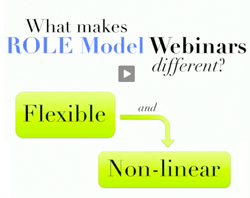 |
| Click this image to see what makes ROLE
Model webinars different! |
| |
In the summer of 2010, COSEE-Ocean Systems (COSEE-OS) debuted the "ROLE Model" webinar series in response to educator feedback requesting more interaction with research scientists. In addition to providing educators timely access to scientists and their ongoing research, these webinars provide scientists a chance to interact with educators while presenting their research in a non-traditional format - through multimedia concept maps created with the
Concept Map Builder (CMB) and presented through the
Ocean Climate Interactive (OCI).
Unlike traditional slide-based presentations, these dynamic maps act as a resource that can be explored with an audience, instead of a one-way, linear presentation. The concept maps presented are loaded with educational assets from the OCI database - including images, videos, news items - that webinar participants can use in their own educational practices, presentations or for their own learning.
The ROLE Model webinars include:
- A presentation from a research scientist who has developed a concept map specifically for the webinar - on relevant science topics, cutting-edge research or specific interest areas - that includes a rich collection of "assets" from the Ocean Climate Interactive.
- A presentation by COSEE-OS staff about how to use the CMB and OCI to create and view concept maps.
- Presentations from educators about "the basics" of concept mapping as well as the unique and varied ways they have used concept mapping in their classroom, informal or other learning environment (first eight webinars only).
ROLE Model Series: Archived Webinars
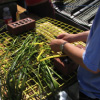 | As part of a collaborative partnership between Mount Desert Island Biological Laboratory and COSEE-OS, this webinar highlighted eelgrass in Maine's coastal waters. Dr. Hilary Neckles (USGS) shares with us her research on the ecology of eelgrass, its range, its services, its threats, and efforts to preserve it. |
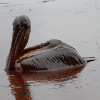 | Dr. Karen Orcutt & Dr. Kjell Gundersen (University of Southern Mississippi) lead us back to the Gulf of Mexico for a continued discussion about oil consumption by microbes. Read blogs from this webinar here. |
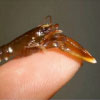 | Richard Wahle (University of Maine) provides a wealth of information about the life cycle of American lobsters. Read blogs from this webinar here. |
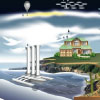 | Fei Chai (University of New Hampshire) outlines the current understanding of, and debate concerning, climate change and global warming. Jenny Albright (Tabor Academy) describes her journey through graduate school where she worked closely with COSEE-OS and collaborated with scientists in the development of content-rich concept maps. Read blogs from this webinar here. |
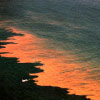 | Linda Kalnejais (University of New Hampshire) explains how unique estuaries are as ecosystems, and how important they have been to human societies. Sharon Gallant (Gardiner Area High School) explains what concept maps are and why they are such useful teaching tools, threading numerous examples created by her students into her presentation. Read blogs from this webinar here. |
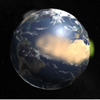 | Carolyn Jordan (University of New Hampshire) talks about how models are used in studying ocean/climate systems. Kate Leavitt (Seacoast Science Center) describes how she worked with Dr. Hui Feng to adapt his map for use as a training resource for co-workers. Read blogs from this webinar here. |
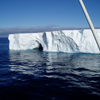 | Ben Twining (Bigelow Laboratory for Ocean Sciences) describes the methods and technologies he uses to conduct research about melting icebergs in the Antarctic. Annette deCharon (COSEE-OS) talks about the components of concept maps and the challenges many people have when they begin constructing them. Read blogs from this webinar here. |
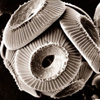 | Lawrence Mayer (University of Maine) talks about carbon - how it moves between air, sea and sediment in earth systems. Beth Campbell (University of Maine) discusses the value of concept mapping as a teaching tool. Read blogs from this webinar here. |
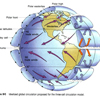 | Penny Vlahos (University of Connecticut) walks participants through a concept map about the chemistry and persistence of certain toxic compounds as they travel around the globe. Sue Klemmer (Camden Hills Regional High School) gave a detailed overview of how she's been teaching her students to concept map for reading comprehension. Read blogs from this webinar here. |
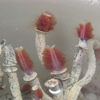 | Peter Girguis (Harvard University) describes the hydrothermal vent ecosystems found in the Juan de Fuca Ridge area. Louise McMinn (Scofield Magnet Middle School) shares her experiences implementing an interdisciplinary grant on water quality with her colleagues. Read blogs from this webinar here. |
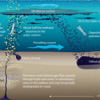 | Kjell Gundersen and Karen Orcutt (University of Southern Mississippi) discuss the impact of the Deep Horizon oil spill on marine communities. Ted Taylor and Michele Benoit (Bangor High School) share how they use concept mapping in their classrooms. Read blogs from this webinar here. |
COSEE Center
COSEE-Ocean Systems, with a team of researchers and other experts from the University of Maine, New England Aquarium, and the Institute for Broadening Participation, was established to implement several integrated activities, each designed to improve COSEE's impact on rural and inland communities.
Contact Information

